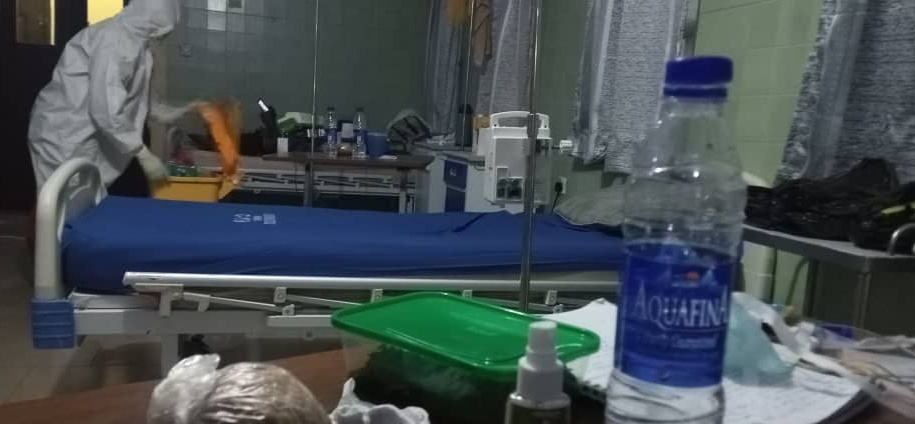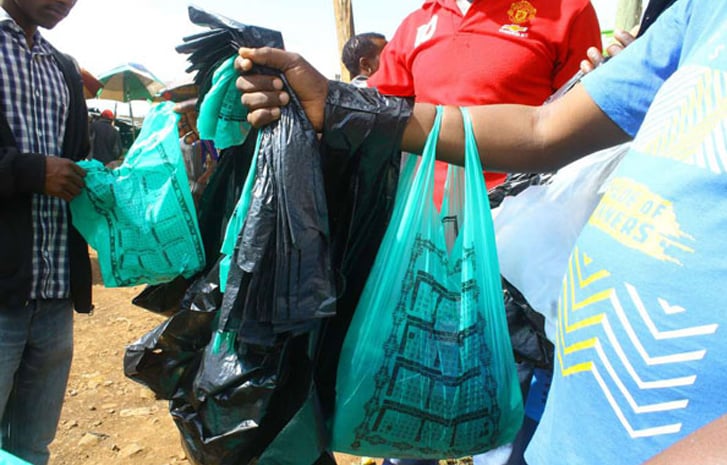BY ASSUMPTA UDE
I am a Nurse-Clinician, Mother and a Caregiver. My husband and I returned to our Maryland home from a short international trip in January 2021. The following morning, what I initially thought were jet lag symptoms – fatigue, exhaustion, body ache and difficulty staying awake – progressed rapidly to severe headache, cough, and fever. Initially, I was concerned and thought, “I wore my mask, washed my hands, and used the sanitizer during my out-of-country stay.”
I tested negative three days ago. What happened? Have I contracted the ‘deadly disease’?
I became febrile within few hours and became alarmed! However, in denial, I reluctantly shared my concerns with my husband who admitted similar flu-like symptoms. In a couple of hours, my husband informed me of a positive severe acute respiratory syndrome-coronavirus2 (SARS-CoV-2) rapid screen result. Oops! It is not jet lag! Both of us isolated immediately – confined to one room for ten days.
Advertisement
Isolation Day 1 – I experienced additional symptoms – extreme fatigue, malaise with no energy to think, coordinate or delegate family responsibilities. I updated my workplace, called our healthcare providers, but they were not available for virtual medical advice or in-person appointments until later in the week. I recall thinking: ‘Here I am, the family caregiver and meal coordinator. Who will do groceries, cook the meals to our taste and preference? I worried about my 80-year-old mother who appeared oblivious to the pandemic outbreak. Who will help her with medications, explain to her in lay terms why I am not able to attend to her in person for the next 10 days? I had a gut feeling that our next 48 hours was critical.
Isolation Day 2-4 – These were worst days of fever, sore throat, severe chest congestion, cough, swollen face, drowning sensation, chest muscles/rib pain, headache and sinus congestion.
I was restless; my husband was terrified. I had no energy to get up. I felt like a heavy weight was resting on me. I had chills, rigors. I thought of going to the emergency room, but was not comfortable with the idea of leaving my sick husband by himself. I resolved to fight the virus as a patient and a clinician. I knew these first few days were critical to our survival. I contacted other clinicians in my network, who recommended aggressive pharmacological and non-pharmacological treatment that included home remedies. I worried about our adult children’s mental health and possibility of losing us and left to make complex decisions. In my opinion, these psychosocial concerns were worse than having chest pain, shortness of breath or dizziness. Ten days looked like ten years.
Advertisement
Isolation Days 5–10 – I had enough energy to drive to my workplace for test that confirmed positive result. I broke down in tears while on the phone with the hospital epidemiologist. I could not taste or smell and cough; chest congestion and fatigue continued to linger. I was off isolation, hale and hearty and below are my survival kit filled with lessons I learned while in isolation.
- Professional Background and Supportive Work Place
As a popular public health mantra goes, where one works…. is important to health and wellbeing. I was a bit embarrassed but my workplace epidemiologist’s willingness to listen and address my concerns was soothing, calming and reassuring. I did not expect such a genuine show of sympathy, empathy and support from a workplace. She went beyond her professional call of duty. In my professional role, I review, synthesise and analyse clinical research proposals, including COVID-19 studies with promising outcomes in both outpatient and inpatient settings. I provide care to well and ill patients and evaluate research studies informing various emerging and approved treatments. I had various clinicians in my network available for helpful meaningful discussion. I made a quick decision to self-isolate based on identified warning signs of Covid-19 infection, when I had no documented confirmed positive test results. I initiated self-management early with a pulse oximeter, thermometers and incentive spirometer. In addition to over the counter vitamin C, D and zinc supplements and traditional alternative home remedies for flu-like symptoms. I taught my husband proper techniques for prone positioning, chest physical therapy, use of incentive spirometer and performing steam inhalation. I initiated early treatment with prescribed medications. I had soup spices, fresh frozen herbs, and fruits rich in vitamins and zinc in stock and readily available.
2. Two in the Same Isolation Room
As a couple in isolation, it was easy to discuss and strategise on how to manage the illness. We encouraged each other. Our sense of humour and watching funny videos helped us to laugh and relax, in spite of the fear of possible complications and death. We helped each other with prone positioning, use of inhalers and adherence to the medication regimen. We encouraged each other on self-care and safe use of recommended herbal remedies, including steam inhalation, proper use of incentive spirometer and chest physical therapy.
Advertisement
3. Home Structure and Dynamics
Our single family home had enough rooms to isolate from the rest of the family and made it easier for family members that had to quarantine, while we were in isolation. A house with a back entrance door to my elderly sick mother’s room made her self-care and quarantine easy for the nurse that cared for her. My elderly mom’s room had all she needed, including a full bath and she did not need to step outside her room. This minimised her risk of exposure.
- Faith, Friends, Family Inspiration and Support
An inspiring narrative of a Nurse Bioethicist on building professional resiliency and coping was helpful in my resolve to ‘fight.’ A supportive family helped my gratitude level, positive attitude and posture. Neighbours and friends from my church community drove down with home-cooked hot meals and groceries. I recalled scriptures that reassured my ability as I dealt with psychological and mental malaise, anxiety, worry, and fear of the unknown. Reflecting on biblical documentaries and references on health and wellbeing helped me to redefine and dismiss possible worse Covid diagnosis outcomes. I chose to reflect, retreat, and rest from work and business.
I tested a few weeks after isolation with a negative result. Having a caring family, tribe of professional peers, colleagues, friends, neighbours, a safe place to isolate in the house and faith resources helped my coping ability and recovery. I feel very privileged as a survivor. Yet I think of many who have lost loved ones due to COVID-19 and many experiencing disabling lingering effect of the disease. Though health experts and the public have a lot to learn about COVID pandemic, I think home environment, family and community support are necessary components to healing and recovery. There are various suggestions and claims on social media on managing this deadly illness. The public is looking for what worked, what is safe and what is backed up by science. It is 90 days following my battle with Covid. I am getting my vaccination this week. The availability of various vaccines is a welcome development. However, the future of this pandemic remains unclear based on several waves of recurrence notable in various countries of the world. As health scientists predict possible severe acute respiratory syndrome-coronavirus 2 (SARS-CoV-2) resurgence up to 2024, early affordable life saving measures should be disseminated and made available to the public. I do not know how about the next wave as many areas are seeing spikes. I do not know about the next infectious disease that could potentially threaten public health and safety. Perhaps, my survival kit may come handy any time especially for underserved people in home and community settings. Until next article, get vaccinated, eat right, wash your hands, wear your mask, stay safe and healthy.
Advertisement
Dr. Assumpta Ude is a Diabetes Nurse Consultant, Nurse Practitioner, Author, Health Blogger, and Postdoctoral Researcher in Training. She can be reached on [email protected]
Disclaimer – This article represents personal opinion and experience of the author and is only for information and awareness. It is not a substitute for medical advice.
Advertisement
Views expressed by contributors are strictly personal and not of TheCable.
Add a comment






